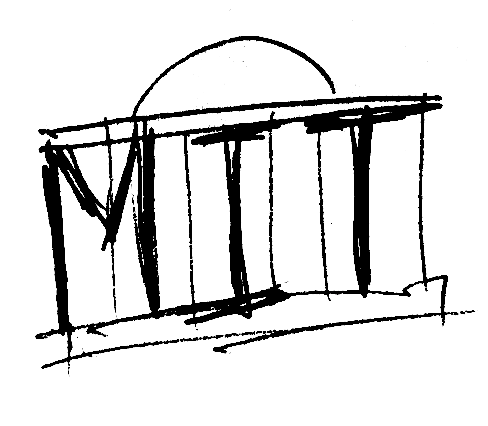Most of my undergraduate journey at MIT is now complete, and plenty has been gleaned along the way. When I reflect on my lessons, I see the following eight, which neatly pair in complementary ways.
Breadth and Depth
#1 Do not overfill your plate with classes; keep it balanced or intentionally low so you can drill deep. It's tempting to select six or seven classes and want to dominate the semester, but not only will that congest your time in the busiest bottlenecks around midterm and final season, it also denies you the chance to do research. The more you load up with activities and classes, the less time you have to dive deep and master each. It is far better to truly grasp a few topics, and have plenty of branches/possibilities in each, than to cast too wide a net and fail to catch any fish or know how to proceed afterwards. Indeed, depth offers breadth; see my article "Easter Egging MIT".
#2 Get a finger in many pies and shop around. With the big Easter Egg field that is MIT, not surveying the scene and taking some eggs off the beaten path would be regrettable. I went in as a sure-fire mathematics major, and preemptively ruled out other possibilities. But now, I've grown increasingly warm to the humanities (particularly philosophy and history) as applications, not just theory or items in their own right, because in freshman year, I took a few Concourse classes. I'd also like to acknowledge the half-semester exploratory classes, which give an introduction to a discipline (e.g. design thinking, materials engineering) and a new perspective on how people make sense of the world. These morsels of knowledge1 collectively add to a more flexible mindset and increase your success and discovery of beauty.
#1 professes going deep, #2 professes going wide. Their meeting point: Having a core set of classes and leaving yourself time gives you the flexibility to pick up on other interests or the stream of seminars and lectures at MIT.
Greatness and Modesty
#3 Know that you are worthy to be dealing with some of the great thinkers and professors. MIT is famous, and I will not belabor the point. If it's not you working with MIT faculty and developing creative ideas with impact, then who?
#4 Be humble enough to admit that you have a lot to learn. You are an (inexperienced) undergraduate after all, and expectations are not as high as for e.g. PhD students. The higher up one goes, the more important it is to acknowledge one's limitations. One should not be afraid to make mistakes or stumble, because we all do, and facing up to these shortcomings and calmly proceeding from them is what differentiates the subpar from the great.
Others' Perceptions
#5 Assume that peers are constantly 'scanning' you for character traits, even if they do not explicitly mention it. People are judgmental--if you observe people and draw conclusions from their behavior, then so do the people around you. This does not necessarily mean you should be more cautious, but that you should be aware that you can be, and are, picked up by sensors both digital2 and human.
#6 Don't assume others know about you; promote yourself and be explicit. Just because you see someone doesn't mean that person understands you, or what you've done. It is tempting and natural to suggest that others have similar experiences to you, and will understand you, but this is seldom the case. Advertisers do a superb job of getting in your head; seek to do the same when introducing yourself.
Ideas and Success
#7 Be confident with your ideas, and test them out at MIT! A critical step of a good product is product-market fit, and that involves talking to or surveying a large number of customers to understand their needs. If you have a new discovery or creation, let MIT students know, and see where it takes you! This could be a startup product, website, or class. There's no better environment to get intellectual and practical feedback than at college, and besides, others' feedback is free! You get advice and actionable suggestions, and perhaps interested organizations will reach out as well.
#8 Be ready to scrap your plans in the face of better ideas. Sometimes it is necessary to rebrand, rethink, or redo a product; better now that you know it needs improvement than later. Reiteration and reconstruction are the hallmark of adaptability and greater success; there should be little sorrow over something that wouldn't have worked anyway.
Footnotes
1 That's what reading books is all about! See my article "For the Strategy of the World".
2 They're harder and harder to escape...
